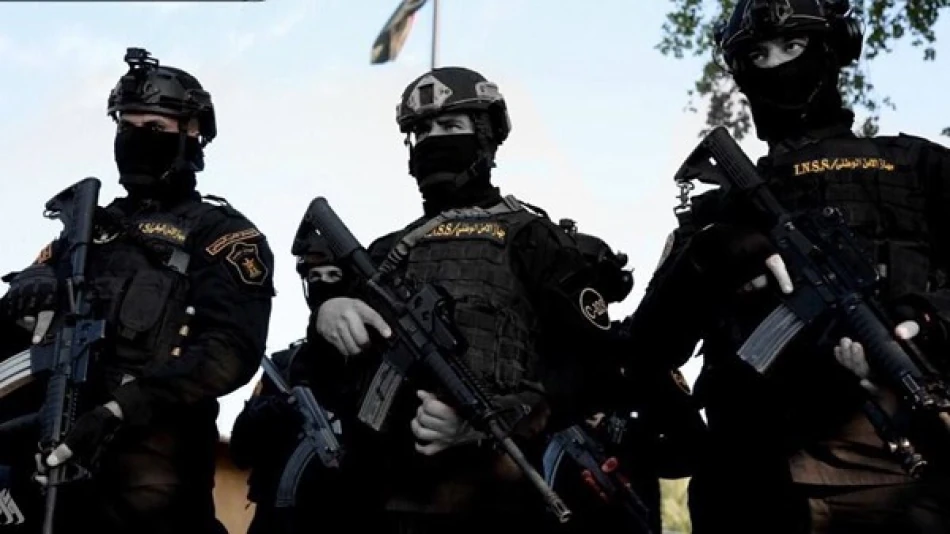
Deadly Dispute Between Neighbors Leaves 4 Iraqi Police Officers Dead
Baghdad Clan Feud Over Electricity Tariffs Turns Deadly, Kills Six Including Four Police
A dispute between two tribal clans over electricity generator fees in Baghdad escalated into deadly violence on Saturday, killing six people including four federal police officers and wounding nine others. The incident highlights Iraq's ongoing struggles with inadequate public services and the dangerous intersection of tribal justice, economic desperation, and law enforcement in the country's fragile security environment.
The Deadly Confrontation
The violence erupted in the Al-Saada district in eastern Baghdad when federal police attempted to mediate what began as a neighborhood dispute over increased electricity generator tariffs. According to Interior Minister Abdul Amir al-Shammari, the clash resulted in the deaths of two officers and two enlisted personnel, with the death toll rising as two wounded officers later succumbed to their injuries.
Security forces faced what officials described as "direct armed assault from elements involved in the dispute," leading to a firefight that killed two attackers and wounded five others. Authorities have arrested 14 people in connection with the incident.
Iraq's Electricity Crisis Fuels Social Tensions
While authorities have not officially confirmed the cause of the dispute, a security official speaking on condition of anonymity indicated the violence stemmed from disagreements over electricity generator fees—a flashpoint that reflects Iraq's broader infrastructure failures.
Private Generators Fill the Gap
Despite sitting on some of the world's largest oil reserves, Iraq continues to struggle with chronic electricity shortages nearly two decades after the 2003 U.S.-led invasion. Many neighborhoods rely on private generators operated by local entrepreneurs or tribal networks, creating informal economies that can spark territorial and financial disputes.
These generator operators often increase tariffs during peak summer months when demand soars, creating economic pressure on families already struggling with inflation and unemployment rates exceeding 25% among youth.
Tribal Justice Meets State Authority
The Baghdad incident underscores the complex dynamics between Iraq's formal security apparatus and traditional tribal governance systems. In many areas, tribal leaders mediate disputes and enforce their own justice, sometimes putting them at odds with federal authorities.
A Pattern of Escalation
Similar confrontations have occurred across Iraq as economic pressures mount. The country's weak institutional capacity often leaves police caught between competing claims from tribal groups, businesses, and desperate citizens. When mediation fails, these disputes can quickly turn violent in a society where weapons remain widely available.
The Interior Ministry's strong response—promising "deterrent measures against all criminals involved in stirring up sedition and armed conflicts"—reflects government concerns about maintaining authority in the face of tribal and clan-based power structures.
Implications for Iraq's Stability
Saturday's violence represents more than an isolated incident—it exemplifies how Iraq's failing infrastructure creates conditions for social unrest. The government's inability to provide reliable electricity forces citizens into parallel economic systems that operate outside state control, sometimes with deadly consequences.
For Iraq's leadership, the challenge extends beyond law enforcement to addressing the root causes of such conflicts: inadequate public services, economic inequality, and the persistence of armed tribal networks that can challenge state authority. Without significant investment in electricity infrastructure and economic opportunities, similar confrontations are likely to recur as summer approaches and power demands increase.
The incident also highlights the dangerous working conditions faced by Iraqi security forces, who often find themselves mediating complex social and economic disputes with limited resources and training for such scenarios.
Most Viewed News

 Layla Al Mansoori
Layla Al Mansoori






